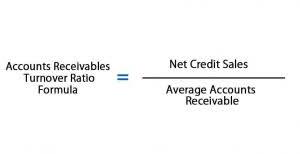
Typically, checking accounts also come with a debit card for easy access to funds. When starting a new small business, one of the first steps should be opening a business checking account. You might also consider opening a savings account to deposit tax obligations.
- You may do this every month, but at the very least, balance and close your books every quarter.
- Click here to read our full review for free and apply in just 2 minutes.
- Bank accounts allow businesses to safely store their money and make transactions easily.
- This is done to test if the debits match the credits after the adjusting entries are made.
- Before joining the team, she was a Content Producer at Fit Small Business where she served as an editor and strategist covering small business marketing content.
- Designed for small businesses, Kashoo features an all-inclusive pricing structure, and you can add additional users to Kashoo at no additional cost.
Best for Multi-User Small Businesses
- Accounting software eliminates a good deal of manual data entry, making it entirely possible to do your own bookkeeping.
- Good preparation and documentation are critical for paying taxes (including payroll taxes) on time.
- Perhaps you’re a mixture of the two—and that’s right where you need to be.
- Once you’ve got a handle on how to begin bookkeeping for your small business, it’s time to set yourself up for success with an ongoing bookkeeping system.
- Choosing between single and double-entry bookkeeping often depends on your company’s volume of transactions.
So you’ll want to understand which tasks your bookkeeper is and isn’t responsible for handling. Outsourcing your bookkeeping is another option, and this guide on how to find the best virtual bookkeeping service can https://www.bookstime.com/articles/small-businesses-bookkeeping help you get the process started. By following the tips and best practices outlined in this guide, you’ll be more equipped to set a strong financial foundation for future growth, profitability, and ultimate success.
4 financial planning tips for solopreneurs, small business owners – Business Insider
4 financial planning tips for solopreneurs, small business owners.
Posted: Wed, 06 Mar 2024 08:00:00 GMT [source]
Keep Personal and Business Costs Separate

While cash basis may be easier to use, most businesses choose the accrual basis accounting for recording transactions. Under this method, you record income when you make a sale and expenses when you incur them. This is irrespective of whether you received or paid cash for the product or service.
Choosing an Accounting Method
- Start by learning all about how to open a business bank account, then check out our top recs for business checking and business savings accounts to find the right account for you.
- The balance sheet accounts also called the permanent accounts, remain open for the next accounting cycle.
- When hiring external team members, keep in mind that some of the responsibility still falls to you as the proprietor.
- As a business owner, you need to know how much money your customers owe you and how much has been received.
- Wave, also sometimes known as Wave accounting, is the best free accounting software, although it’s not as free as it used to be.
It all begins with getting your accounting software set up correctly. Accountants rely on bookkeeping records to analyze and advise on the financial activity, health, and growth potential of a business. At least once a week, record all financial transactions, including incoming invoices, bill payments, sales, and purchases.

You can learn a lot about how to do accounting for small businesses just from browsing the internet. But nothing beats up-front, personalized advice from a certified professional—in this case, a bookkeeper, accountant, or CPA. Bookkeepers, accountants, and CPAs all bring something different to the table. Based small business bookkeeping on the nature of your business, you might decide to offer credit to customers. Instead of collecting payments at the point of sale, you may choose to invoice them at a later date. When you start a business, open a separate bank account that will keep your business finances separate from your personal ones.

Without clean financial records, you may be at risk of paying settlements or tax penalties for avoidable financial errors. You also may be able to prevent or uncover fraud, whether from customers, vendors, or employees. Your general ledger is organized into different accounts in which you record different types of transactions. Bear in mind that, in the world of bookkeeping, an account doesn’t refer to an individual bank account. Instead, an account is a record of all financial transactions of a certain type.
Choose your accounting method (cash or accrual)
While bookkeeping provides oversight into each individual transaction (in order to catch discrepancies and correct mistakes), accounting provides a thorough analysis of these numbers. With these tips, you can begin to streamline your finances to give your small business the best chance of succeeding. Consider taking some short bookkeeping or accounting courses to learn more. You might want to begin with Bookkeeping Basics or Intuit Bookkeeping, both offered by Intuit on Coursera. You can also learn how to use Excel to keep your books or create your business budget with Google sheets. If you’re not using software, you should consider setting a time each month to make payments and the payment method used.
